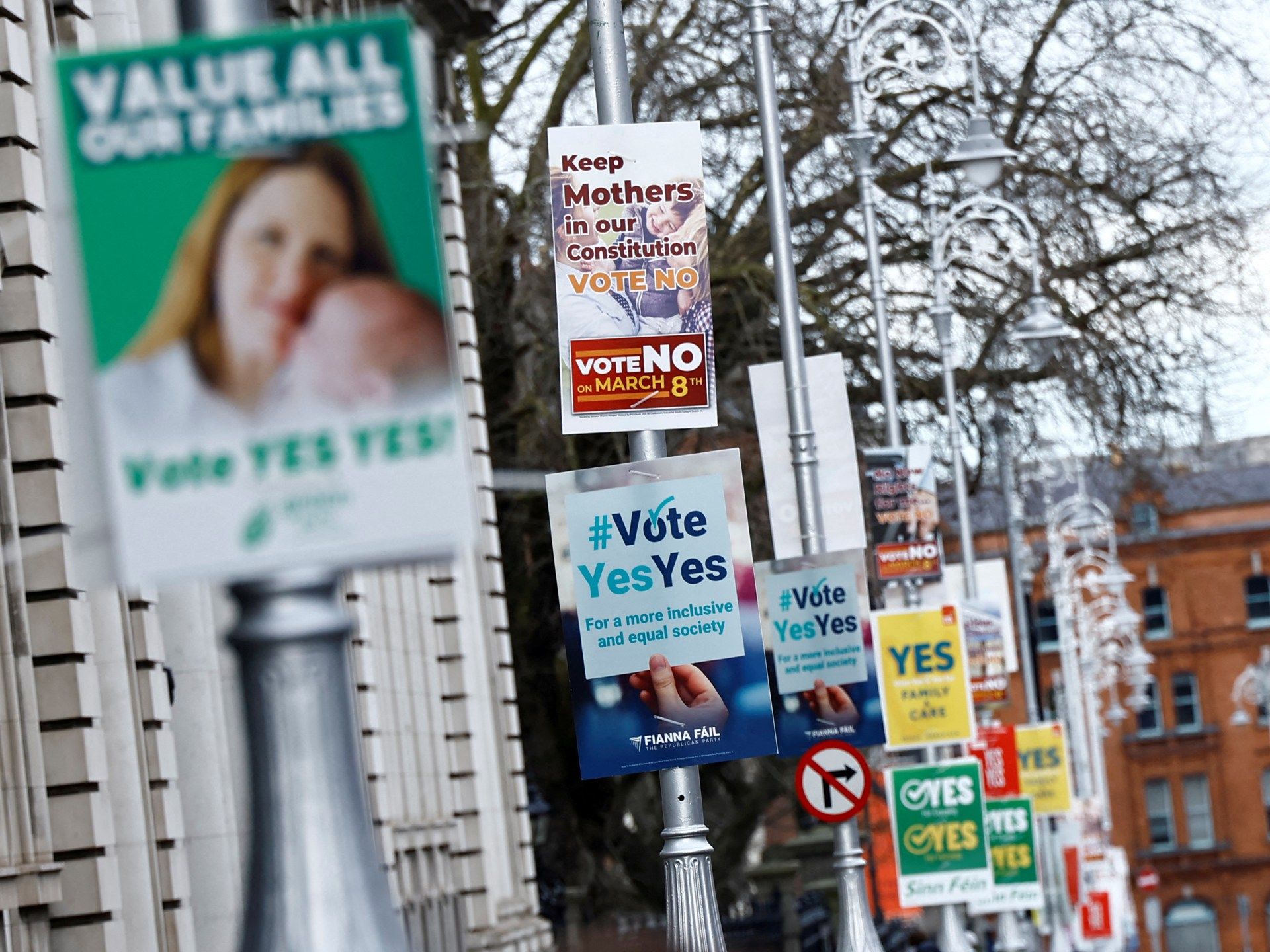Prime Minister Leo Varadkar says the proposed constitutional amendments offer an opportunity to remove “very outdated and very sexist language about women.”
Voters in Ireland are voting in twin referendums on proposals to replace constitutional references to the definition of the family and women's role in the home.
Prime Minister Leo Varadkar described Friday's election, which deliberately coincides with International Women's Day, as an opportunity to end “very outdated, very sexist language about women.”
The two proposals, called the family amendment and the care amendment, would make changes to the text of Article 41 of the country's 87-year-old socially conservative founding document.
The first asks citizens to expand the definition of family by removing the reference to marriage as the basis “on which the family is founded” and replacing it with a clause that says that families can be founded “on marriage or on other lasting relationships.” .
The second would eliminate a reference to the role of women in the home as key support of the State. It would delete a statement that says “mothers shall not be compelled by economic necessity to perform work that neglects their duties in the home” and add a clause saying that the state will endeavor to support “the provision of care by members of a family”. to another”.
Polls opened at 07:00 GMT and close at 22:00 GMT and the results of both votes are expected on Saturday night. Citizens over 18 years of age (about 3.3 million people) have the right to vote.
Social transformation
The referendums are the latest to address outdated legislation in Ireland, where the Roman Catholic Church was once all-powerful. Since becoming a republic in 1937, Ireland has gone from being a conservative and overwhelmingly Catholic country to an increasingly diverse and socially liberal society.
The social transformation has been reflected in a series of constitutional changes in a country where until 1973, single women had to resign from their jobs when they got married and married women were disqualified from applying for vacancies.
In 1995, Irish voters legalized divorce in a referendum. Twenty years later, they endorsed same-sex marriage and, in 2018, repealed the abortion ban.
“A woman's place is wherever she wants to be, and nothing less is acceptable in our constitution,” Orla O'Connor, head of Ireland's National Council of Women, said Wednesday as she campaigned for a “yes” vote. in the center of Dublin.
All major political parties support the changes in Friday's vote, and recent opinion polls predict smooth approval for both proposals.
Participation in the focus
However, a low-profile campaign before the vote did not appear to engage the electorate and could see low turnout. In the past, low turnout has increased the proportion of people voting for the status quo.
“No” campaigners argue that the concept of “long-term relationship” is undefined and confuses voters and that women and mothers are being “cancelled” from the constitution.
Disability rights activists have also argued that the care amendment appears to present disabled people as a burden on families and that the state abdicates its role in providing care.
“I am confident that the sexist and harmful language in Article 41.2 will be corrected in the future,” Professor Siobhan Mullally, director of the Irish Center for Human Rights at the University of Galway Law School, told Reuters news agency.
“However, I am less confident that a future government will address our continued failure to commit to supporting the public good of care work, in families and communities.”











